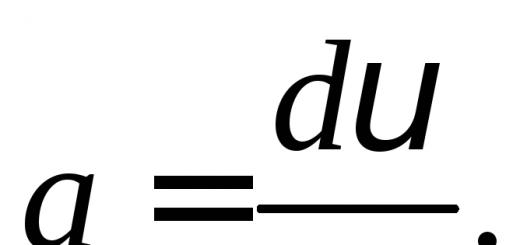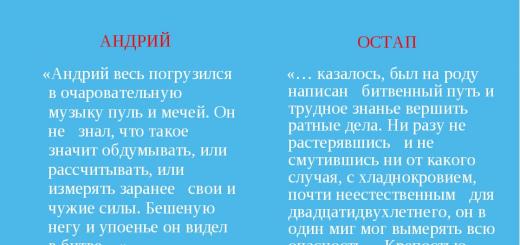Table: Expression How long does it take?
How long does it take by plane from Paris to Rome? It takes two hours. How long does it take to fly from Paris to Rome? It takes two hours.
How long does it take by taxi from the hotel to the airport? It takes twenty minutes. How long does it take by taxi from the hotel to the airport? Twenty minutes.
2
The action for which time is spent is determined in the construction by the infinitive of the verb with the particle to. Sometimes the object that carried it out is also indicated.
Table: Interrogative form how long + it take and infinitive phrase
Table: Affirmative form it + take and infinitive phrase
How long does it take to fly from Mexico City to New York? How long does it take to fly from Mexico City to New York?
It takes a long time to learn Chinese. It takes a long time to learn Chinese.
It doesn’t take long to cook an omelette. It doesn't take long to cook scrambled eggs.
It takes me 10 minutes to read a newspaper. I read the newspaper in 10 minutes.
It took Evan two hours to get home. It took Evan two hours to get home.
Did it take you a long time to find my house? Have you been looking for my house for a long time?
How long will it take me to learn to ski? How long will it take me to learn skiing?
It will take us an hour to repair the car. It will take us an hour to fix the car.
Very often we say that an action takes a certain amount of time:
“Cleaning takes me an hour. It will take him two hours to prepare the report. It will take him 20 minutes to wash the car.”
In English, such sentences are constructed using the It takes construction, which is very often used in spoken English.
In this article I will tell you how to correctly construct such sentences in 3 tenses.
From the article you will learn:
Using the It takes construction in English

The construction It takes is used when we say that some action takes a certain amount of time.
We translate this construction into Russian as “something takes me a certain amount of time”, “I need a certain amount of time to do something.”
For example: Cooking takes her half an hour.
Constructing such sentences in English is very simple. Let's look at the construction of such a proposal step by step.
1. Since we do not have a character, the first place in the sentence is the pronoun it and the verb take, which is translated in this case as “to borrow, to be required.”
We can use the verb take in any tense. For example, in the present simple tense, we add the ending -s - takes to our take.
For example:
Since the person is not the main character, we use the following pronouns:
- me - I (to me)
- you - you (to you)
- her - she (her)
- him - he (to him)
- them - they (to them)
- us - we (to us)
For example:
It takes her…
It takes her...
- an hour - hour
- two hours - two hours
- ten minutes - ten minutes
- the whole day - all day
- a week - a week
For example:
It takes her an hour…
It takes her an hour...
For example:
It takes her an hour to do her homework.
It takes her an hour to do her homework.
Let's look at the general outline of such a proposal:
It takes + person + time + to + action
| me | ||||
| you | ||||
| them | an hour | to work | ||
| It | takes | us | two hours | to clean |
| her | to cook | |||
| him |
For example:
It takes him ten minutes to walk to school.
It takes him 10 minutes to walk to school.
It takes her an hour to translate an article.
It takes her an hour to translate the article.
As I said, we can use this construction in different tenses. Let's see what it looks like in the past tense.
It takes in the past tense

To put our construction in the past tense and say that something took a certain amount of time, we need to put the verb take in the past form - took.
Nothing else will change in the offer.
Let's look at the diagram:
It took + person + time + to + action
| me | ||||
| you | ||||
| them | an hour | to work | ||
| It | took | us | two hours | to clean |
| her | to cook | |||
| him |
It took me three hours to repair a car.
It took me three hours to fix the car.
It took them fifteen minutes to write it.
It took them fifteen minutes to write it.
We can also use this construction in the future tense.
It takes construction in the future tense
With our construct, we can tell that some action will take a certain amount of time. To do this, we need to put the verb take in the future tense.
This is done very simply, we put will before take - will take.
The outline of such a proposal would be:
It will take + person + time + to + action
| me | ||||
| you | ||||
| them | an hour | to work | ||
| It | will take | us | two hours | to clean |
| her | to cook | |||
| him |
It will take him a week to finish the picture.
It will take him a week to finish this painting.
It will take them four hours to get to an airport.
It will take them four hours to get to the airport.
So, now you are familiar with another colloquial construction. Now let's practice using it.
Reinforcement task
Translate the following sentences into English. Leave your answers in the comments.
1. It will take her 15 minutes to wash the dishes.
2. It took him half an hour to do his homework.
3. It takes us an hour to prepare dinner.
4. It took her 3 days to prepare for the exam.
5. It will take them 4 hours to write a report.
Our whole life is inextricably linked with the concept of time, and this, it goes without saying, is reflected in all languages. Many words, sentences, and stable phrases appeared, one way or another connected with time. We often say, for example, what we spent our time on, where we spent our time, how long it takes us to finish something, how long it takes us to get to work, etc.
In addition to “temporary” nouns that show periods of time, “segments” of time or measures of time (second, minute, hour, day, week, month, year, etc.), there are also nouns that, by their meaning, indicate that time is wasted on them. These are words such as - lesson, lecture, film, performance, reading, working day, flight, trip, break, concert, travel, life, etc. All these words can be associated with duration in time, which is measured in measures of time, that is, in “temporal” nouns and have a beginning and an end to the period. All kinds of schedules, routines, calendars, clocks, etc. are also associated with time. That is, these words can also be added to the list of words associated with time.
If there are special nouns that are tied to time, then there are verbs that are somehow related to time..
One of these verbs is “to take”. Many people know the verb “to take” only by its literal meaning: to TAKE = TAKE, TAKE, but there is also a figurative meaning associated with abstract concepts. “Time and space” are the same abstract concepts with which the verb ‘to take’ is associated, and its meaning is to TAKE, TAKE, DEMAND time or space. Other abstract nouns can be used with the verb “to take”, for example: require PATIENCE, PERSISTENCE, DEVOTION, BRAVE, etc.
But let's go back to time. The verb “to take” has become “It takes...”, which has only one meaning: time that someone wastes spent or will be spent on a specific action. This phrase is translated in a “free” way, that is, there are many translation options, for example:
I need a lot of time to do this work.
It takes me half an hour to travel.
I get to school in ten minutes.
It usually takes him about twenty minutes to get up, wash and get dressed.
He spent ten years developing this project.
Such sentences with the phrase “It takes...” are built according to a “template”, in which there is a movable (changeable) and a fixed (unchangeable) zone.
The moving zone is actually the phrase “it takes...”: Here the pronoun “It” is introductory (introductory it) and it is not translated, and the verb “to take” has a figurative meaning associated with time = “to take away, take away” time". It is the movable zone that is “responsible” for grammatical tense (present, past and future) and forms affirmative (+), negative (-) and interrogative sentences (?). For clarity, you can separate the moving zone from the stationary zone by two (||) vertical lines (double solid, which is forbidden to cross).
There are three parts in the stationary zone.
The first part: answers the question WHO? That is, who needs time to perform an action; who needed time to complete the action; or who will take time to complete the action. These can be pronouns in the indirect case (me, you, him, her, us, them) or nouns.
Part two: HOW MUCH TIME? That is, we indicate the “amount” of time in time units: an hour, half an hour, two days, three months, five years, much, ten minutes, etc.
Third part: The action itself, on which time is spent. A verb expressing an action is always in the infinitive, that is, with the particle “to”: to read the article, to get to the office, to type the documents, etc.
I will write several examples in different tenses of sentences in the affirmative (+), negative (-) and interrogative (?) forms with subsequent translations. For clarity, I will highlight a moving zone with two vertical lines.
1. It usually takes || me ten minutes to have breakfast. = I usually need ten minutes to have breakfast. or I usually have breakfast ten minutes before. or It usually takes me ten minutes for breakfast. Present Indefinite Tense.(+)
2. It will not take || you long to copy out this text. = It won’t take you long to rewrite this text. or You won’t need much time to rewrite this text. Future Indefinite Tense.(-)
3. It took him || him three hours to read this book yesterday. = Yesterday it took him three hours to read this book. or. He read this book in three hours yesterday. or It took him three hours to read this book yesterday. Past Indefinite Tense.(+)
4. It will take || her an hour and a half to translate this article. = It will take her an hour and a half to translate this article. or It will take her an hour and a half to translate this article. Future Indefinite Tense.(+)
5. It hasn’t taken || we have much time to build our house. = It didn’t take us long to build our house. or It didn’t take us long to build our house. Present Perfect Tense. (-)
6. Does it usually take || them much time to get there? = Do they usually take a long time to get there? or Does it usually take them a long time to get there? Present Indefinite Tense. (?)
7. It has taken || the secretary an hour to type the documents. = It took the secretary an hour to type the documents. = The secretary typed the documents in an hour. Present Perfect Tense. (+)
8. Did it take|| Helen long to cook dinner yesterday? = How long did it take Elena to cook lunch yesterday? or Did Elena take a long time to prepare dinner yesterday? Past Indefinite Tense. (?)
9. Will it take|| you an hour to write to your friend? = Will it take you an hour to write to your friend? or Will it take you an hour to write to your friend? Future Indefinite Tense. (?)
10. It didn't take|| Ann much to paint this picture the other day. = It didn’t take Anna long to draw this picture the other day. or The other day it didn’t take Anna long to paint this picture. Past Indefinite Tense. (-)










